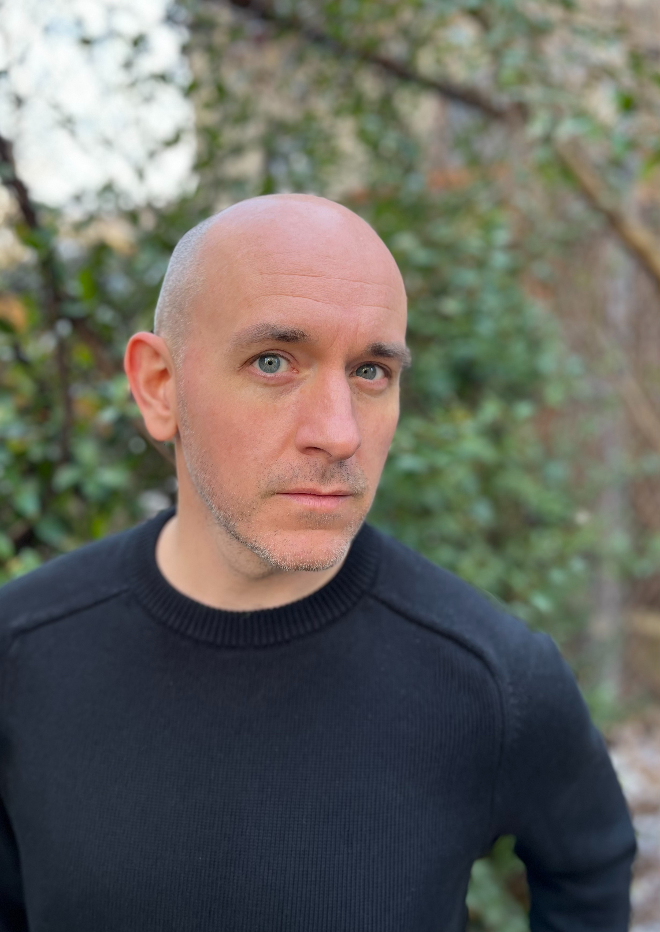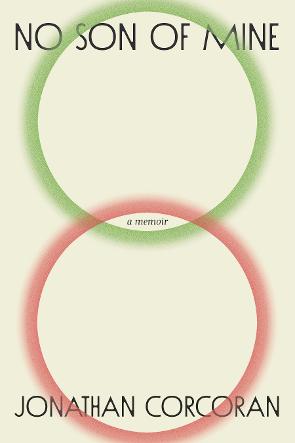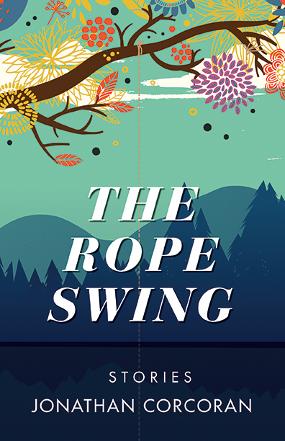Still: The Journal: Congratulations, Jon, on the publication of your memoir and on all the accolades you’ve received from readers and bookstores and reviewers. One of the features of No Son of Mine that we really admired was how your story is partially grounded in the actual writing of the memoir—almost like a meta-memoir. You speak many times about being the writer, the teller, of this tale and what the process was like to write this book. Why were those scenes that address the act of writing important to include in your story?
Jonathan Corcoran: Thank you so much! I can’t believe how positively No Son of Mine has been received. It’s every writer’s dream that people will understand what you were trying to do with a book. And I think that notion—what I was trying to do by writing this book—is related to that meta quality of how my writing process appears on the page. I began writing this book a little more than year after my mother passed away. I was grappling with two issues: How to deal with the complex grief I felt after she died—a grief for the person who had perhaps loved me and hurt me more than any other—and how to tell both of our stories fairly. Revealing my writing process in the actual pages of the book was almost instinctual. I wanted to be transparent, honest, and open. Memoirs are nonfiction, and nonfiction involves real lives and real people. My mother and I deserved nothing less than the truth, and I wanted readers to trust that I was offering something as close to truth as possible. I didn’t immediately realize it as I was writing, but the structure of this book and the writing itself mirrored my grieving process. I think readers can sense that when they see my author-self intruding on the page.
Still: The Journal: A related question of sorts: Your story is very visceral, very physical, especially in the beginning as you and your husband sicken with COVID right after lockdown while your mother is simultaneously facing her own painful demise. But you also refer to the physicality of writing: “Writing these words is like cutting open the skin on my stomach,” or “Writing this now, my body still tenses up.” Do you always feel these physical effects when writing or do you think it was just unique to telling this particular true story?
Corcoran: If my stomach is churning while I’m writing, if my skin grows hot, then I know that I’ve hit upon something important. I don’t always feel this way when I’m drafting work, but my best writing always seems to come out of narratives that push my bodily self to the brink in some way. I remember this from writing my first story collection, The Rope Swing. The stories in that book that were most successful involved a lot of tears on my part. I should also say that there are moments when I feel a sort of ecstasy when I’m writing—a desire to scream and laugh and thrust. I suppose I’m a writer who strives to tell stories from and of the body. If I’m not feeling my own writing in some deep, visceral way, how can I expect readers to respond to my work?
Still: The Journal: One of the questions you grapple with throughout this memoir is “What does it mean to be disowned?” And you tie that to the notion of “fatalism,” which, of course, is one of those long-standing shortcuts used to describe Appalachians. Could you talk some more about how you see connections between being disowned and being resigned to helplessness within yourself and within your family (and maybe the larger culture if you want)?
Corcoran: Ah, our old friend “fatalism.” I know that it’s a charged statement to say that Appalachians are fatalistic or have given themselves over to resigned helplessness. A confession: I feel as an Appalachian expat a certain reluctance to weigh in on this conversation—I’ve seen what sloppy and overly simplistic portrayals of Appalachians can do (I won’t mention a certain person’s name—ha!). I have to admit: The West Virginia I grew up in is no longer the same West Virginia on the ground today. I sometimes think that I ran away from West Virginia because I was scared that I couldn’t make a home for myself there, that I would never be welcome. But the truth is much more complex: When my mother cut me off, I was told I couldn’t come back. How do I make sense of or claim a place when I’m told by my kin that I’m no longer welcome there? For so long—because of the trauma I experienced—my view of Appalachia remained frozen in time, to the year 2004 to be exact, the year when I was told I couldn’t come home again.
I want to present two things that can both exist side by side that might answer this question in a roundabout way: First, my mother had so much potential in life, but she was rarely encouraged, rarely supported by her family members, and she eventually gave up. She never had money or connections or a helping hand. At a certain point, she no longer saw a way forward or even a way out. She put her self-worth into her children and gave herself over to God and waited for heaven. There were all these beautiful clothes in her closet, and yet, when I see her in my memory, she wears only bleach-stained sweatpants and oversized t-shirts.
And second: When I wrote this book and I was forced to go back through my memories, I realized that the first people to come to my aid during my time of crisis were my community members back in West Virginia, who told me I’d never truly be alone or without family. And then I remembered all the teachers and the community theatre members and the parents of my friends who told me to aim high, my sisters who protected me, and so on. I don’t know if I said this directly in the book, but I could have sunk into a pit—and I did for a time—but somewhere along the road, all these people kept encouraging me, pushing me, instilling me with this resilience. And in their strong hands, I think I realized that Appalachians at their best are far from fatalistic. I was pulled up when I most needed it. Somewhere along the way, I was taught not just how to survive but also how to thrive.
Still: The Journal: Despite hurting you continually, your mother is portrayed with an enduring, undulating empathy. A 15-year stretch of on-again-off-again scenarios is obviously so damaging, but you’ve been clear in drawing a compassionate yet honest, whole portrait of your mother. Could you speak about how you “characterized” your mother for a memoir? Did your fiction-writing skills play into how you “peopled” your memoir?
Corcoran: Part of writing this memoir and part of my maturing into an adult self is learning to understand that people are multi-dimensional. More importantly, I’ve taught myself to understand that people function outside of our own perceptions of them. We sometimes imagine as children that our parents exist solely for our benefit, that they only exist when our eyes are open. It’s as if they disappear when we go to sleep. As adults, we begin to understand that a lot of a parent’s life happens offstage, outside of our purview. Don’t forget to throw time and change into that mix. To make peace with my mother and what had happened between us, I had to allow myself to see her from as many angles as possible. She was a wonderful, flawed, and complex person who showered me with a lot of love and a lot of misguided anger and hate. Like all the best characters in novels and stories, she was deeply human. She has her own backstory, and I had to admit that I was only privy to so many of those details.
I sometimes wonder if I became a writer because I spent so much of my life trying to understand her motivations. Writing fiction—short fiction in particular—taught me how to focus on relevant portions of a person’s story, how to drop in just enough background and details to allow a reader to imagine and inhabit the worlds I’ve created. I always want readers to know that the characters I’ve written—both real and imagined—have lives that extend far beyond the borders of the slices of narrative that make it to print. I am more than my relationship with my mother, as I’ve always had a full, buoyant life outside of our tumultuous relationship. I know that she too lived, loved, and dreamed in ways that I can only imagine. She was 38 years old when she gave birth to me. I’m turning 40 this fall, which is to say that my mother more or less lived the equivalent of my whole, current life experience before she was even pregnant with me. Writing this book and putting both of our lives in perspective was painful, but also freeing. When I imagine the next twenty years of my life, I see a lightness. What mysteries await?



